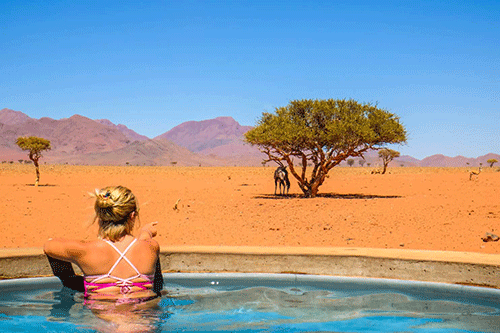New regulations will require visitors from six out of the 10 countries, where most of Namibia’s tourists originate to apply for a visa to visit the country.
However, senior officials do not expect any major disruptions, as many of these affected countries qualify for visa on arrival.
As per the top 10 list released by the Namibia Investment Promotion and Development Board (NIPDB), the affected countries include major tourist countries for Namibia such as Germany, France, United Kingdom, United States, Italy and Switzerland. However, the visa requirement issue does not seem to be a big barrier to enter Namibia – and many industry insiders expect business as usual.
The Namibian government last month decided to impose entry visa requirements for nations that have not reciprocated its visa waiver gestures.
Namibia presently grants visa exemptions to approximately 55 nations, with only 18 of those reciprocating these exemptions.
The new regulations mean citizens from more than 30 countries will lose visa-free access to Namibia if their governments do not reciprocate visa exemption arrangements.
Selma Namutuwa, NIPDB’s manager of investment attraction, stated that in 2022, South Africans accounted for 25.4% of Namibian arrivals, followed by Angola (17.8%), Germany (13.6%), Zambia (5.4%) and Botswana (4.3%).
“Foreign arrivals to Namibia increased by 99.4% in 2022, recording 539 601 total foreign arrivals, compared to 270 644 in 2021,” she said last week while addressing a business forum in the capital.
Namutuwa added that in February 2024, Namibia received 37 207 visitors, and tourists from Germany, Austria and Switzerland made up 40.9% of these visitors.
On his X page, economist Salomo Hei said there is no need to panic, advising Namibians to “relax”.
He is adamant that government’s decision will not take bread out of people’s mouths.
Economist Rowland Brown, however, tweeted that the tourism industry is the second-largest employer in the country and a critical part of Namibia’s growth, global integration, technological advancement and development.
He said Namibian tourism and investment into other countries is largely insignificant.
However, he added that the new visa requirements celebrate Namibia’s “bold stance and national pride”, but cautioned that it could reduce the country’s attractiveness as an investment and tourism jurisdiction, and could reduce Namibian employment.
Brown added that tourism has an extraordinarily high multiplier effect on the local economy. Thus, tourists from the impacted countries could stay away because of the additional cost, warning that Namibia could be worse-off due to these new administrative requirements.
Also on a social media update, economist Robert MacGregor said the new visa requirements are a short-sighted move, with costs that could far outweigh potential benefits.


